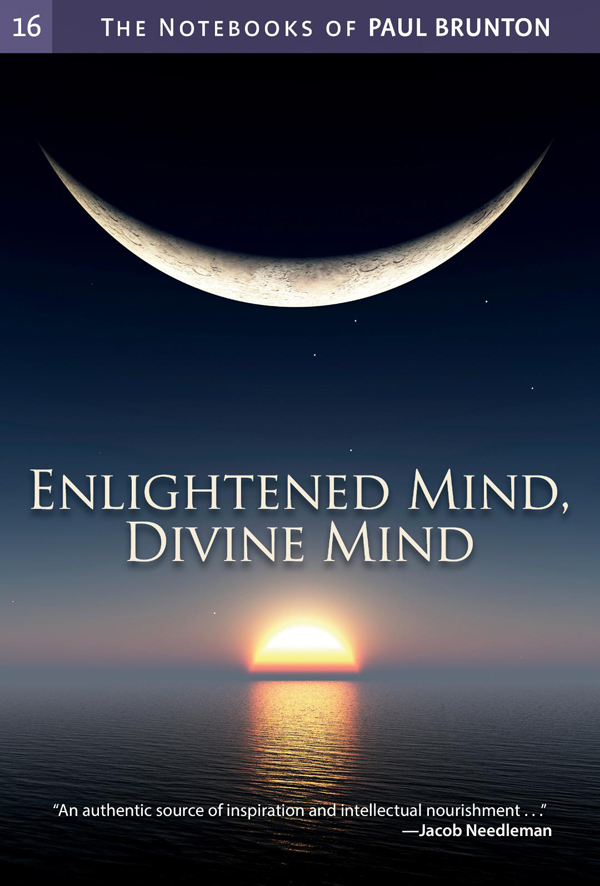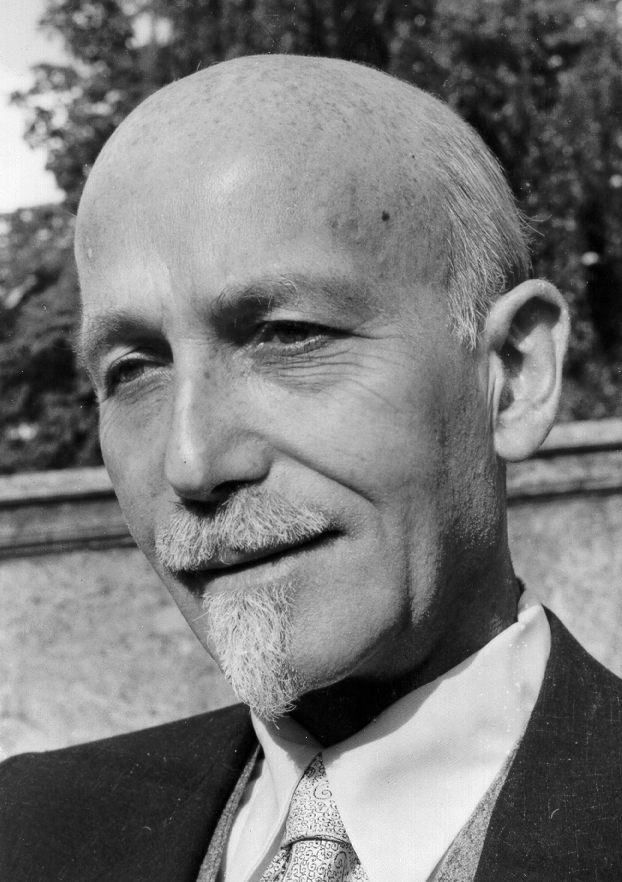Astronoesis
Philosophy's Empirical Context, Astrology's Transcendental Ground By Anthony Damiani
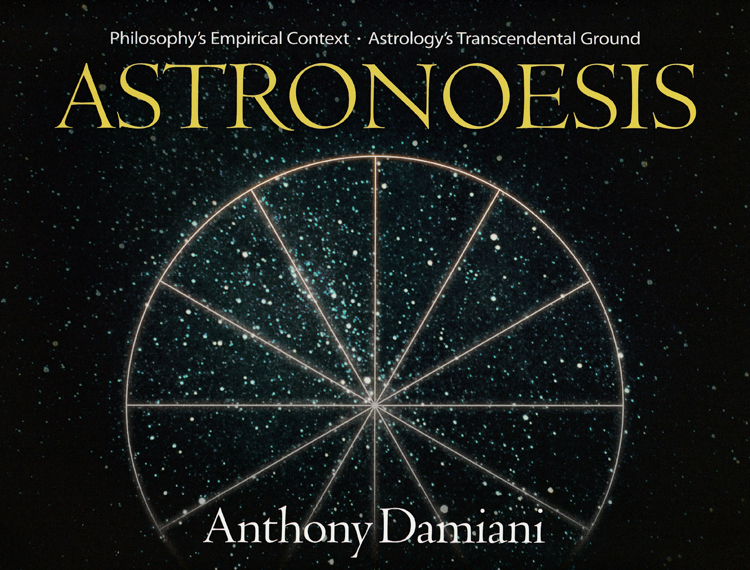
Retail/cover price: $90.00
Our price : $72.00
Next 50 (online only) : $54.00
(You save $36.00!)
About this book:
Astronoesis
Philosophy's Empirical Context, Astrology's Transcendental Ground
by Anthony Damiani
"I think that this is possibly the most important book on Philosophy and Astrology and the Metaphysics of Astrology in 1500 years, in other words since the fall of Classical Civilization . . ." —Robert Hand
Subjects: Philosophy, Astrology
40% discount today!
416 pages
170+ diagrams
10 x 8
ISBN 10: 0-943914-00-0
ISBN 13: 978-0-943914-00-8
Book Details
"I think that this is possibly the most important book on Philosophy and Astrology and the Metaphysics of Astrology in 1500 years, in other words since the fall of Classical Civilization. . . ." —Robert Hand
"Astronoesis is the most significant book I have read in years. It is one of those few great works that show us who we are by placing an understanding of the human being within the context of the larger cosmos. . . ." —Robert Sardello
"This is an important book that could well occasion a reconsideration of astrology itself." —Robert Schmidt
"Damiani was a visionary genius . . . for those who wish to penetrate to the living heart of astronoesis, the book hits with the force of revelation." —The Mountain Astrologer
"Astronoesis is . . . a truly beautiful book . . . nothing short of elegant, an object of art. . . . an initiation manual. It provides--for one willing to go through the labor--a transformation of consciousness into the capacity to live within the innerness, the inner life of the cosmos. Nothing less!" —Parabola
"This, the sensible universe," states Anthony Damiani in his bold introduction," is the primordial scripture. . . . [It] embodies the wisdom of primal principles . . . that are as far beyond it as the heavens are beyond the Earth." He then draws us deep into the mind of possibly the greatest of all cosmologists of soul — Plotinus — to show "that the basis of astrology is an acquaintance with the wisdom-knowledge that sustains the cosmos." With incredible deftness, he shows how deep contemplation of universal and omnipresent "wisdom emanations" comes to a vital and unique spiritual fulfillment in each birth chart —that is, in the unique image of the whole of life that each of us calls "my mind."
In keeping with its exquisitely contemplative content, Astronoesis is beautifully designed and meticulously manufactured. It is in a 10" x 8" horizontal format, has 416 luxurious pages of 80# Finch vanilla vellum paper, and is 2-color throughout. It has more than 170 figures and diagrams, is full-cloth hardcover bound with gold foil stamping on front and spine, smyth-sewn to lay flat, and is wrapped in a non-curling 4-color laminated jacket. Each volume is individually shrink-wrapped and retails for only $90.
Because Astronoesis is oversized and heavier than the average book, shipping cost is higher than average.
View Table of Contents in PDF format from here.
"Astronoesis is the most significant book I have read in years. It is one of those few great works that show us who we are by placing an understanding of the human being within the context of the larger cosmos. Anthony Damiani takes us deep into the thinking of the greatest cosmologist of soul who has ever lived — Plotinus. Then, with incredible deftness, the author works through a foundation for astrology that restores this ancient science of soul to its true nobility. If you want to know how to live from within soul, this book will take you there, turning all assumptions you had about soul inside out." —Robert Sardello, author of Freeing the Soul from Fear, Stillness, The Power of Soul, and many other works.
"I think that this is possibly the most important book on Philosophy and Astrology and the Metaphysics of Astrology in 1500 years, in other words since the fall of Classical Civilization. It serves to reconnect Astrology with its own philosophical foundations which we can build upon rather than trying to graft Astrology onto other less appropriate philosophical foundations such as Theosophy, Jung, and modern Psychology in general. It has already had an impact on the way in which I think about the symbols of Astrology. I would recommend this book to any serious student of Philosophy and Astrology, although I would warn the student that it is not for the philosophically faint of heart." —Robert Hand, author of Planets in Transit and many other works
"For quite some time now, 'metaphysics' has meant one thing to students of Western philosophy and something quite different to esotericists. Astronoesis shows that there is hope for a reconciliation between these two traditions by carrying out a metaphysical interpretation of the astrological chart, on the one hand, and by suggesting an 'astrological' interpretation of Neoplatonic philosophy, on the other. Both traditions of metaphysics have been enriched by this ambitious project: an entirely new dimension has been added to astrological symbolism, and an entirely new symbolic formalism developed for the organization and integration of the concepts of traditional philosophy. —Robert H. Schmidt, Co-Founder of Project Hindsight and Director of Research for the PHASER Foundation
"With Astronoesis, Anthony Damiani opens a whole new field for us to wonder at — the deep, sacred knowledge of the stars." —David Appelbaum, Parabola editor and Professor of Philosophy at SUNY New Paltz
See sample pages from The One chapter from here.
View sample pages from the Soul chapter in PDF format from here.
View sample pages from the Nature chapter in PDF format from here.
The Mountain Astrologer, April/May 2001 issue
This is it — the much anticipated, breakthrough book that Robert Hand calls "possibly the most important book on Philosophy and Astrology . . . in 1500 years."
Astronoesis (Greek for "star wisdom") is rooted in the insights of the 3rd-century sage Plotinus, who viewed the cosmos as "a living Idea, a thought within a universal intelligence." (Plotinus was profiled in the August/September 2000 issue of The Mountain Astrologer.) With breathtaking lucidity, author Anthony Damiani explores the cosmology of consciousness and how cosmic patterns or "ideas" manifest through the zodiac. "You're living these ideas . . . why not try to consciously understand what's going on?"
Damiani (1922 – 1984) was a visionary genius intent on peering into the heart of reality, making personal acquaintance with "the wisdom-knowledge that sustains the cosmos." To this end, he steeped himself in the mystical traditions of both East and West (the Dalai Lama calls him "one of my closest spiritual brothers"), with particular attention to astrology as key to "the primordial living scripture" of the stars. Damiani believed that astrology is evidence of the inherent meaningful ness of the cosmic process. It reveals the "idea" each of us was born to manifest in our lives.
This beautifully produced volume is pricey, and the dense philosophical terminology may be somewhat daunting to the non-metaphysically inclined. But for those who wish to penetrate to the living heart of astronoesis, the book hits with the force of revelation. In Damiani's brilliant attempt to delineate the philosophical principles upon which astrology is based, he points us toward the One from which both we and the stars emerged. This masterpiece invites us to engage in full awareness with the living wisdom of the cosmos.
—reviewed by Linda Johnsen
Review from Parabola magazine
How many books do you treasure?
How many of those books go beyond touching you in a personal way and enter into the realm of cultural treasures? How many of these cultural treasures are modern? Put this work, Astronoesis, high on that list.
Anthony Damiani, founder of Wisdom's Goldenrod Center for Philosophic Studies in Valois, New York, worked on his masterpiece from the founding of the Center in 1972 until his death in 1984. His students have lovingly and with the greatest care imaginable edited this writing, which gives astrology a much-needed philosophical basis and provides philosophy a way of addressing the most immediate, intimate, and timeless questions of life.
Astronoesis is, first of all, a truly beautiful book. Its design is nothing short of elegant, an object of art. The organization of the content forms an integral part of the art. The text is augmented with extraordinary diagrams and pictures of Damiani's blackboard drawings from his classes. Footnotes are printed in the margins of the text, making them readable as you move through the book. Interludes and extensions and an extremely helpful epilogue by the editors all serve to make a complex book accessible.
Astrology is often practiced and its findings understood from within the same mode of consciousness as that which we live in everyday life. This discipline of soul and spirit is taken to be a body and a tradition of technical knowledge concerning the effects of the starry realms on the unfolding of individual life. Some practitioners develop a fine intuitive sense and an ability to read a birth chart as a whole rather than an accumulation of complex information. Other astrologers approach a chart with an interest in the soul-being of the person rather than just the outer personality. This book goes much further. We are presented with an entryway into an astrological mode of consciousness. This work is an initiation manual. It provides — for one willing to go through the labor — a transformation of consciousness into the capacity to live within the innerness, the inner life of the cosmos. Nothing less!
The author is steeped in the soul-cosmology of Plotinus, and we are taken into a deep consideration of the central aspects of the living cosmos — the One, the Intellectual Principle, the Soul, and the System of Nature. The astrological mandala, the circular form of the birth chart, is then meditated upon to the point where all preconceptions that we might have dissolve and a new, qualitative consciousness begins to form. The astrological mandala as a whole expresses the all-pervasiveness, the all-transcendence and creativeness of the One. The twelve signs image the Ideas in the Divine Mind. The meanings of the twelve signs differ considerably from how many astrologers usually see them. For example, Gemini correlates to Truth; Cancer to States of Being; Leo to One in Life; Virgo to Universal Intellection; and so on. These inner qualities have to be meditated upon as the outpouring of the One and the Ideas through which the One knows itself.
In this qualitative, astrological mode of consciousness, the Soul is understood both as an aspect of the One, and as having an imaginal intelligence of its own. Soul animates the Ideas within the One. Here we can begin to enter into the consciousness of the constellations and of the planets as living beings. What are they doing with us each individually? That is the question within which a birth chart is approached. The individual human soul is the god within us, expressed as multiple inner qualities.
As the book proceeds we are taken further and further toward the particularities within a birth chart. We are led to understand that Nature is also Soul, that nature contemplates. We are taken into an inner understanding of the planets in the degrees, which image the knowing of the One, particularized for each soul-being. We are taken into a new understanding of the planets in aspects as the structure and function of the psyche, the image of the Soul. Finally the author unfolds the meaning of the planets in the houses as the circumstances of the expression of the individual soul.
This is a book for a lifetime. A wonder, really. The very meaning of an astrological chart and thus of an astrological reading changes from being a representation to be interpreted to a symbolic expression of the gods who are interpreting each of our lives.
—Reviewed for Parabola by Robert Sardello, co-director of the School of Spiritual Psychology in Greensboro, North Carolina. He is the author of Freeing the Soul from Fear (Riverhead), Love and the World: A Guide to Conscious Soul Practice (Lindisfarne) and Facing the World with Soul (HarperCollins)
Click here for information about (and to order) a digital edition of Astronoesis.
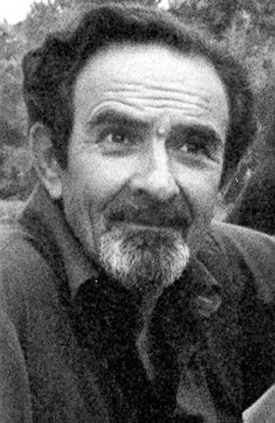
From the introduction to Anthony's book, Looking into Mind
For hundreds of us who met him in the 1960s and 1970s, Anthony Damiani (1922–1984) was a man of many facets, any one of which would have made him remarkable. But first and foremost he was a man—a vital, passionate, kind, and dynamic human being who revered life by living sincerely. He saw the meanings embedded in each person’s experience as lines of a primordial scripture that one is born to embrace and understand—with and as one’s whole being. His genius lay in piercing the secular veneer, uncovering these meanings, and awakening the heart to an awareness of the sacred song at their core. This was a process of giving birth to truth, not as a conceptual exercise but as an act of love, an exquisite expression of the proper relation between a soul and its source.
Anthony’s mental energies were volcanic, as though surging upward from the very core of what compelled his attention. His burning desire to experience, understand, and express the undeniable significances of being human led him through a variety of life-experiences and specialized fields of study. When he discussed spiritual philosophy, he often seemed incandescent with enthusiasm about the value of what he had discovered and could share. But he had little regard for pretension either in himself or in others. While his generous spirit always encouraged us to be ourselves and supported each of us wholeheartedly in times of inner or outer personal difficulty, his penetrating gaze or mischievous humor soon deflated us when we became too puffed up about anything we thought we had learned. On first impression, he was the very antithesis of the conventional image of a spiritual teacher.
* * * * *
Anthony Damiani was born in 1922 into an Italian immigrant family on the Lower East Side of Manhattan, and grew up in Brooklyn. As a child and young man, he suffered the fate of many a potentially deep thinker: his long silences were interpreted by teachers as indicating a learning deficiency and he was often placed among “slow learners” in his classes. Even then, he could not settle for surface appearances, pat answers to questions that were themselves too shallow, and read Plato secretly. His artistic nature first expressed itself in drawings and paintings that showed extraordinary sensitivity and perceptiveness.
Anthony spoke of two particular events from his youth that awakened him to the possibility of a higher life. One was when he first heard Schubert’s Quintet in C. He said, “Once I heard that piece, I knew there was a heaven.” The piece awakened in him a lifelong passion for inspired music and kindled a serious aspiration to become a classical pianist. The second came when he was watching a newsreel from India at a Brooklyn movie house. In the background of the main scene, he saw a yogi meditating on the sun. The image burned into his mind, and from that time forward learning the art of meditation became one of his main preoccupations.
He married his childhood sweetheart, and together they started a family which eventually included six sons. Though they had little money, he often spoke fondly in later life of how happy they were in their first Brooklyn flat. They had few domestic furnishings, having chosen instead to spend most of their earnings on inspiring books and a highly diversified collection of fine music.
Anthony held a variety of jobs, often two at a time. They included working as a waiter, then as a maitre d’hôtel, spending nine years as a longshoreman on the New York docks, and managing a major New York City bookstore. He also took many classes in philosophy at Brooklyn College, CCNY, and the New School for Social Research, though he chose not to earn an academic degree. As his family grew in size, it became increasingly difficult for him to find the time and quiet to continue his self-directed studies in philosophy and mysticism while earning enough money to support the family. His solution was to start working nights as a token seller in a relatively slow section of the New York subway system; there he was able to pass the night immersed in the thoughts of Plotinus, Buddha, Shankara, Patanjali and many other great sages—and earn money at the same time.
Possibly the most important single event in Anthony’s development was when he met the British philosopher Paul Brunton. From the day of their first meeting, Anthony felt that he had found his destined teacher. He was profoundly inspired by Paul Brunton’s ability to integrate mystical philosophy and modern science into an approach to self-realization especially suited for the modern mind, and to express his findings in clear English. The breadth and depth of Paul Brunton’s research, application, and personal achievement catalyzed Anthony’s own desire for a comprehensive updating and philosophic synthesis of the wisdom—practical and spiritual—of both East and West.
But Paul Brunton took no students formally, describing himself as “a writer and researcher, with some experience in these matters . . . that is all.” Anthony often had to be content with limited outer contact, making himself of service when appropriate, and acting primarily on the inspiration he drew from within himself from Paul Brunton’s example and occasional explicit instructions. Nonetheless, a unique and very special relationship developed through the years between these two genuinely remarkable men as Anthony learned that the best way to venerate one’s spiritual teacher is to work sincerely at becoming one’s own best self. In his “retirement,” Paul Brunton praised Anthony highly and often recommended him to people seeking help with their studies and personal development.
Shortly after meeting Paul Brunton, Anthony resolved to give up his study of the piano and focus his aspirations on meditation and philosophic studies. Listening to inspired music remained, however, an essential part of his inner development. Because music was for him more transparent than words as a vehicle of spiritual discovery, he often discovered his next guiding intuition through a piece of music, and integrated it deeply into his feelings before trying to approach it in an intellectual way. This practice was of such value to him that it later became an integral part of his teaching method.
The next major contribution to Anthony’s development came through a detailed study of the great Neoplatonic sage Plotinus. In Plotinus’ Enneads, Anthony found what he considered the most comprehensive extant statement of the metaphysical aspects of perennial philosophy, a teaching that complemented his understanding of Paul Brunton’s writings and held out the promise of answering his remaining questions. His studies in Plotinus and related Platonic teachings continued for the rest of his life and formed the foundation of his own most important creative work.
In 1963, the Damiani family moved out of New York City to the Finger Lakes region of upstate New York. One moving van contained their domestic possessions. Another was filled with books on philosophy and mysticism. Throughout his years of working in bookstores, Anthony had always taken first choice on any new or rare esoteric books. His collection was astonishing not only for its intrinsic breadth and quality, but also for the extensive underscoring and marginalia that testified to his thousands of hours of intensive study.
Upstate, Anthony took a night job as a toll-taker on the New York Thruway, a job that like his subway work allowed time to study. In 1967, he suffered a severe heart attack and experienced death. He said later that during those moments when he thought he was leaving life behind, his heart overflowed with love and tenderness for all living things. Though he had previously envisaged his new home as primarily a hermitage for retreat and study, harvesting the fruits of contemplation in relative solitude soon became unthinkable.
Later that year, with the help of his son Stephen, he rented a small storefront in Ithaca, New York, and filled its shelves primarily with his own books. He kept his night job on the Thruway and spent most of his days in the store. This store, with a statue of the Buddha in the window, attracted inquisitive students and some teachers from Ithaca College and Cornell University, as well as many other people who just happened to be passing through town. The man inside soon legitimized and catalyzed our deepest spiritual urges.
In those days, Anthony was a dynamo. He slept only a few hours between getting off his night job at seven in the morning and leaving for the store shortly after noon. At first, only a steady trickle of people came to buy or borrow books and then returned to discuss them with Anthony. Soon, the number of us eager to discuss spiritual issues or learn the art of meditation with him grew large enough that informal evening classes began in the back room of the store. Anthony often wore his toll-taker’s uniform while giving these classes, so that he could rush out at the last minute to drive fifty miles to make his 11:00 night shift on the Thruway. Within two years, his animated classes on Jung’s psychology, Hinduism, Buddhism, Christian Scholasticism, Platonism, Paul Brunton’s writings, and an exciting new approach to a genuinely spiritual astrology had attracted more people than the store could hold.
In 1972, Anthony and his wife Ella May donated five acres of their family land to what became the Wisdom’s Goldenrod Center for Philosophic Studies, and we built its first building ourselves. Through the next seven years, we built three more buildings as our needs grew organically, including an extensive library. The library was dedicated in 1979 by His Holiness the XIVth Dalai Lama of Tibet, who spent three days with the Wisdom’s Goldenrod community on his first U.S. tour. The Dalai Lama praised Anthony’s activities at Wisdom’s Goldenrod as an excellent balance of the spiritual and the practical, and he spoke of Anthony himself as “a truly great man.”
Throughout all the developments that took place after he opened the bookstore, Anthony took great pains to present himself as a fellow student, not a teacher, and he always taught without salary or payment of any kind. But after the Dalai Lama’s visit, it became obvious even to Anthony that he had become, even if unwittingly, a spiritual teacher.
* * * * * *
Anthony Damiani died in October, 1984. He left behind a variety of materials that merit publication, including numerous essays, a nearly completed book on philosophical symbolism, and a wide selection of recorded classes on how various spiritual issues are treated in different philosophical and religious traditions. The points he declined to pursue in detail in the Swedish discussions are developed in forthcoming* material being prepared for publication here at Wisdom’s Goldenrod. We chose the conversations in this book as the most widely accessible introduction to his work.
Special thanks from each of us go to the Damiani family, not only for their help in preparing this book and for granting us the rights to publish it, but much more importantly for sharing Anthony and themselves with us through all these years. Together we send this book into the world with the hope of sharing Anthony’s inspiration toward individual integrity and global philosophic understanding. “If people who claim to be interested in spirituality can’t find a harmony and make peace among themselves,” he used to ask, “how will the politicians ever make peace?”
Paul Cash
Director
Larson Publications
*Editor’s note: Since this introduction was written, three more publications have come forth: Standing in Your Own Way, Living Wisdom, and Anthony's master work: Astronoesis.
Book Details
"I think that this is possibly the most important book on Philosophy and Astrology and the Metaphysics of Astrology in 1500 years, in other words since the fall of Classical Civilization. . . ." —Robert Hand
"Astronoesis is the most significant book I have read in years. It is one of those few great works that show us who we are by placing an understanding of the human being within the context of the larger cosmos. . . ." —Robert Sardello
"This is an important book that could well occasion a reconsideration of astrology itself." —Robert Schmidt
"Damiani was a visionary genius . . . for those who wish to penetrate to the living heart of astronoesis, the book hits with the force of revelation." —The Mountain Astrologer
"Astronoesis is . . . a truly beautiful book . . . nothing short of elegant, an object of art. . . . an initiation manual. It provides--for one willing to go through the labor--a transformation of consciousness into the capacity to live within the innerness, the inner life of the cosmos. Nothing less!" —Parabola
"This, the sensible universe," states Anthony Damiani in his bold introduction," is the primordial scripture. . . . [It] embodies the wisdom of primal principles . . . that are as far beyond it as the heavens are beyond the Earth." He then draws us deep into the mind of possibly the greatest of all cosmologists of soul — Plotinus — to show "that the basis of astrology is an acquaintance with the wisdom-knowledge that sustains the cosmos." With incredible deftness, he shows how deep contemplation of universal and omnipresent "wisdom emanations" comes to a vital and unique spiritual fulfillment in each birth chart —that is, in the unique image of the whole of life that each of us calls "my mind."
In keeping with its exquisitely contemplative content, Astronoesis is beautifully designed and meticulously manufactured. It is in a 10" x 8" horizontal format, has 416 luxurious pages of 80# Finch vanilla vellum paper, and is 2-color throughout. It has more than 170 figures and diagrams, is full-cloth hardcover bound with gold foil stamping on front and spine, smyth-sewn to lay flat, and is wrapped in a non-curling 4-color laminated jacket. Each volume is individually shrink-wrapped and retails for only $90.
Because Astronoesis is oversized and heavier than the average book, shipping cost is higher than average.
View Table of Contents in PDF format from here.
"Astronoesis is the most significant book I have read in years. It is one of those few great works that show us who we are by placing an understanding of the human being within the context of the larger cosmos. Anthony Damiani takes us deep into the thinking of the greatest cosmologist of soul who has ever lived — Plotinus. Then, with incredible deftness, the author works through a foundation for astrology that restores this ancient science of soul to its true nobility. If you want to know how to live from within soul, this book will take you there, turning all assumptions you had about soul inside out." —Robert Sardello, author of Freeing the Soul from Fear, Stillness, The Power of Soul, and many other works.
"I think that this is possibly the most important book on Philosophy and Astrology and the Metaphysics of Astrology in 1500 years, in other words since the fall of Classical Civilization. It serves to reconnect Astrology with its own philosophical foundations which we can build upon rather than trying to graft Astrology onto other less appropriate philosophical foundations such as Theosophy, Jung, and modern Psychology in general. It has already had an impact on the way in which I think about the symbols of Astrology. I would recommend this book to any serious student of Philosophy and Astrology, although I would warn the student that it is not for the philosophically faint of heart." —Robert Hand, author of Planets in Transit and many other works
"For quite some time now, 'metaphysics' has meant one thing to students of Western philosophy and something quite different to esotericists. Astronoesis shows that there is hope for a reconciliation between these two traditions by carrying out a metaphysical interpretation of the astrological chart, on the one hand, and by suggesting an 'astrological' interpretation of Neoplatonic philosophy, on the other. Both traditions of metaphysics have been enriched by this ambitious project: an entirely new dimension has been added to astrological symbolism, and an entirely new symbolic formalism developed for the organization and integration of the concepts of traditional philosophy. —Robert H. Schmidt, Co-Founder of Project Hindsight and Director of Research for the PHASER Foundation
"With Astronoesis, Anthony Damiani opens a whole new field for us to wonder at — the deep, sacred knowledge of the stars." —David Appelbaum, Parabola editor and Professor of Philosophy at SUNY New Paltz
See sample pages from The One chapter from here.
View sample pages from the Soul chapter in PDF format from here.
View sample pages from the Nature chapter in PDF format from here.
The Mountain Astrologer, April/May 2001 issue
This is it — the much anticipated, breakthrough book that Robert Hand calls "possibly the most important book on Philosophy and Astrology . . . in 1500 years."
Astronoesis (Greek for "star wisdom") is rooted in the insights of the 3rd-century sage Plotinus, who viewed the cosmos as "a living Idea, a thought within a universal intelligence." (Plotinus was profiled in the August/September 2000 issue of The Mountain Astrologer.) With breathtaking lucidity, author Anthony Damiani explores the cosmology of consciousness and how cosmic patterns or "ideas" manifest through the zodiac. "You're living these ideas . . . why not try to consciously understand what's going on?"
Damiani (1922 – 1984) was a visionary genius intent on peering into the heart of reality, making personal acquaintance with "the wisdom-knowledge that sustains the cosmos." To this end, he steeped himself in the mystical traditions of both East and West (the Dalai Lama calls him "one of my closest spiritual brothers"), with particular attention to astrology as key to "the primordial living scripture" of the stars. Damiani believed that astrology is evidence of the inherent meaningful ness of the cosmic process. It reveals the "idea" each of us was born to manifest in our lives.
This beautifully produced volume is pricey, and the dense philosophical terminology may be somewhat daunting to the non-metaphysically inclined. But for those who wish to penetrate to the living heart of astronoesis, the book hits with the force of revelation. In Damiani's brilliant attempt to delineate the philosophical principles upon which astrology is based, he points us toward the One from which both we and the stars emerged. This masterpiece invites us to engage in full awareness with the living wisdom of the cosmos.
—reviewed by Linda Johnsen
Review from Parabola magazine
How many books do you treasure?
How many of those books go beyond touching you in a personal way and enter into the realm of cultural treasures? How many of these cultural treasures are modern? Put this work, Astronoesis, high on that list.
Anthony Damiani, founder of Wisdom's Goldenrod Center for Philosophic Studies in Valois, New York, worked on his masterpiece from the founding of the Center in 1972 until his death in 1984. His students have lovingly and with the greatest care imaginable edited this writing, which gives astrology a much-needed philosophical basis and provides philosophy a way of addressing the most immediate, intimate, and timeless questions of life.
Astronoesis is, first of all, a truly beautiful book. Its design is nothing short of elegant, an object of art. The organization of the content forms an integral part of the art. The text is augmented with extraordinary diagrams and pictures of Damiani's blackboard drawings from his classes. Footnotes are printed in the margins of the text, making them readable as you move through the book. Interludes and extensions and an extremely helpful epilogue by the editors all serve to make a complex book accessible.
Astrology is often practiced and its findings understood from within the same mode of consciousness as that which we live in everyday life. This discipline of soul and spirit is taken to be a body and a tradition of technical knowledge concerning the effects of the starry realms on the unfolding of individual life. Some practitioners develop a fine intuitive sense and an ability to read a birth chart as a whole rather than an accumulation of complex information. Other astrologers approach a chart with an interest in the soul-being of the person rather than just the outer personality. This book goes much further. We are presented with an entryway into an astrological mode of consciousness. This work is an initiation manual. It provides — for one willing to go through the labor — a transformation of consciousness into the capacity to live within the innerness, the inner life of the cosmos. Nothing less!
The author is steeped in the soul-cosmology of Plotinus, and we are taken into a deep consideration of the central aspects of the living cosmos — the One, the Intellectual Principle, the Soul, and the System of Nature. The astrological mandala, the circular form of the birth chart, is then meditated upon to the point where all preconceptions that we might have dissolve and a new, qualitative consciousness begins to form. The astrological mandala as a whole expresses the all-pervasiveness, the all-transcendence and creativeness of the One. The twelve signs image the Ideas in the Divine Mind. The meanings of the twelve signs differ considerably from how many astrologers usually see them. For example, Gemini correlates to Truth; Cancer to States of Being; Leo to One in Life; Virgo to Universal Intellection; and so on. These inner qualities have to be meditated upon as the outpouring of the One and the Ideas through which the One knows itself.
In this qualitative, astrological mode of consciousness, the Soul is understood both as an aspect of the One, and as having an imaginal intelligence of its own. Soul animates the Ideas within the One. Here we can begin to enter into the consciousness of the constellations and of the planets as living beings. What are they doing with us each individually? That is the question within which a birth chart is approached. The individual human soul is the god within us, expressed as multiple inner qualities.
As the book proceeds we are taken further and further toward the particularities within a birth chart. We are led to understand that Nature is also Soul, that nature contemplates. We are taken into an inner understanding of the planets in the degrees, which image the knowing of the One, particularized for each soul-being. We are taken into a new understanding of the planets in aspects as the structure and function of the psyche, the image of the Soul. Finally the author unfolds the meaning of the planets in the houses as the circumstances of the expression of the individual soul.
This is a book for a lifetime. A wonder, really. The very meaning of an astrological chart and thus of an astrological reading changes from being a representation to be interpreted to a symbolic expression of the gods who are interpreting each of our lives.
—Reviewed for Parabola by Robert Sardello, co-director of the School of Spiritual Psychology in Greensboro, North Carolina. He is the author of Freeing the Soul from Fear (Riverhead), Love and the World: A Guide to Conscious Soul Practice (Lindisfarne) and Facing the World with Soul (HarperCollins)
Click here for information about (and to order) a digital edition of Astronoesis.
About Anthony Damiani

From the introduction to Anthony's book, Looking into Mind
For hundreds of us who met him in the 1960s and 1970s, Anthony Damiani (1922–1984) was a man of many facets, any one of which would have made him remarkable. But first and foremost he was a man—a vital, passionate, kind, and dynamic human being who revered life by living sincerely. He saw the meanings embedded in each person’s experience as lines of a primordial scripture that one is born to embrace and understand—with and as one’s whole being. His genius lay in piercing the secular veneer, uncovering these meanings, and awakening the heart to an awareness of the sacred song at their core. This was a process of giving birth to truth, not as a conceptual exercise but as an act of love, an exquisite expression of the proper relation between a soul and its source.
Anthony’s mental energies were volcanic, as though surging upward from the very core of what compelled his attention. His burning desire to experience, understand, and express the undeniable significances of being human led him through a variety of life-experiences and specialized fields of study. When he discussed spiritual philosophy, he often seemed incandescent with enthusiasm about the value of what he had discovered and could share. But he had little regard for pretension either in himself or in others. While his generous spirit always encouraged us to be ourselves and supported each of us wholeheartedly in times of inner or outer personal difficulty, his penetrating gaze or mischievous humor soon deflated us when we became too puffed up about anything we thought we had learned. On first impression, he was the very antithesis of the conventional image of a spiritual teacher.
* * * * *
Anthony Damiani was born in 1922 into an Italian immigrant family on the Lower East Side of Manhattan, and grew up in Brooklyn. As a child and young man, he suffered the fate of many a potentially deep thinker: his long silences were interpreted by teachers as indicating a learning deficiency and he was often placed among “slow learners” in his classes. Even then, he could not settle for surface appearances, pat answers to questions that were themselves too shallow, and read Plato secretly. His artistic nature first expressed itself in drawings and paintings that showed extraordinary sensitivity and perceptiveness.
Anthony spoke of two particular events from his youth that awakened him to the possibility of a higher life. One was when he first heard Schubert’s Quintet in C. He said, “Once I heard that piece, I knew there was a heaven.” The piece awakened in him a lifelong passion for inspired music and kindled a serious aspiration to become a classical pianist. The second came when he was watching a newsreel from India at a Brooklyn movie house. In the background of the main scene, he saw a yogi meditating on the sun. The image burned into his mind, and from that time forward learning the art of meditation became one of his main preoccupations.
He married his childhood sweetheart, and together they started a family which eventually included six sons. Though they had little money, he often spoke fondly in later life of how happy they were in their first Brooklyn flat. They had few domestic furnishings, having chosen instead to spend most of their earnings on inspiring books and a highly diversified collection of fine music.
Anthony held a variety of jobs, often two at a time. They included working as a waiter, then as a maitre d’hôtel, spending nine years as a longshoreman on the New York docks, and managing a major New York City bookstore. He also took many classes in philosophy at Brooklyn College, CCNY, and the New School for Social Research, though he chose not to earn an academic degree. As his family grew in size, it became increasingly difficult for him to find the time and quiet to continue his self-directed studies in philosophy and mysticism while earning enough money to support the family. His solution was to start working nights as a token seller in a relatively slow section of the New York subway system; there he was able to pass the night immersed in the thoughts of Plotinus, Buddha, Shankara, Patanjali and many other great sages—and earn money at the same time.
Possibly the most important single event in Anthony’s development was when he met the British philosopher Paul Brunton. From the day of their first meeting, Anthony felt that he had found his destined teacher. He was profoundly inspired by Paul Brunton’s ability to integrate mystical philosophy and modern science into an approach to self-realization especially suited for the modern mind, and to express his findings in clear English. The breadth and depth of Paul Brunton’s research, application, and personal achievement catalyzed Anthony’s own desire for a comprehensive updating and philosophic synthesis of the wisdom—practical and spiritual—of both East and West.
But Paul Brunton took no students formally, describing himself as “a writer and researcher, with some experience in these matters . . . that is all.” Anthony often had to be content with limited outer contact, making himself of service when appropriate, and acting primarily on the inspiration he drew from within himself from Paul Brunton’s example and occasional explicit instructions. Nonetheless, a unique and very special relationship developed through the years between these two genuinely remarkable men as Anthony learned that the best way to venerate one’s spiritual teacher is to work sincerely at becoming one’s own best self. In his “retirement,” Paul Brunton praised Anthony highly and often recommended him to people seeking help with their studies and personal development.
Shortly after meeting Paul Brunton, Anthony resolved to give up his study of the piano and focus his aspirations on meditation and philosophic studies. Listening to inspired music remained, however, an essential part of his inner development. Because music was for him more transparent than words as a vehicle of spiritual discovery, he often discovered his next guiding intuition through a piece of music, and integrated it deeply into his feelings before trying to approach it in an intellectual way. This practice was of such value to him that it later became an integral part of his teaching method.
The next major contribution to Anthony’s development came through a detailed study of the great Neoplatonic sage Plotinus. In Plotinus’ Enneads, Anthony found what he considered the most comprehensive extant statement of the metaphysical aspects of perennial philosophy, a teaching that complemented his understanding of Paul Brunton’s writings and held out the promise of answering his remaining questions. His studies in Plotinus and related Platonic teachings continued for the rest of his life and formed the foundation of his own most important creative work.
In 1963, the Damiani family moved out of New York City to the Finger Lakes region of upstate New York. One moving van contained their domestic possessions. Another was filled with books on philosophy and mysticism. Throughout his years of working in bookstores, Anthony had always taken first choice on any new or rare esoteric books. His collection was astonishing not only for its intrinsic breadth and quality, but also for the extensive underscoring and marginalia that testified to his thousands of hours of intensive study.
Upstate, Anthony took a night job as a toll-taker on the New York Thruway, a job that like his subway work allowed time to study. In 1967, he suffered a severe heart attack and experienced death. He said later that during those moments when he thought he was leaving life behind, his heart overflowed with love and tenderness for all living things. Though he had previously envisaged his new home as primarily a hermitage for retreat and study, harvesting the fruits of contemplation in relative solitude soon became unthinkable.
Later that year, with the help of his son Stephen, he rented a small storefront in Ithaca, New York, and filled its shelves primarily with his own books. He kept his night job on the Thruway and spent most of his days in the store. This store, with a statue of the Buddha in the window, attracted inquisitive students and some teachers from Ithaca College and Cornell University, as well as many other people who just happened to be passing through town. The man inside soon legitimized and catalyzed our deepest spiritual urges.
In those days, Anthony was a dynamo. He slept only a few hours between getting off his night job at seven in the morning and leaving for the store shortly after noon. At first, only a steady trickle of people came to buy or borrow books and then returned to discuss them with Anthony. Soon, the number of us eager to discuss spiritual issues or learn the art of meditation with him grew large enough that informal evening classes began in the back room of the store. Anthony often wore his toll-taker’s uniform while giving these classes, so that he could rush out at the last minute to drive fifty miles to make his 11:00 night shift on the Thruway. Within two years, his animated classes on Jung’s psychology, Hinduism, Buddhism, Christian Scholasticism, Platonism, Paul Brunton’s writings, and an exciting new approach to a genuinely spiritual astrology had attracted more people than the store could hold.
In 1972, Anthony and his wife Ella May donated five acres of their family land to what became the Wisdom’s Goldenrod Center for Philosophic Studies, and we built its first building ourselves. Through the next seven years, we built three more buildings as our needs grew organically, including an extensive library. The library was dedicated in 1979 by His Holiness the XIVth Dalai Lama of Tibet, who spent three days with the Wisdom’s Goldenrod community on his first U.S. tour. The Dalai Lama praised Anthony’s activities at Wisdom’s Goldenrod as an excellent balance of the spiritual and the practical, and he spoke of Anthony himself as “a truly great man.”
Throughout all the developments that took place after he opened the bookstore, Anthony took great pains to present himself as a fellow student, not a teacher, and he always taught without salary or payment of any kind. But after the Dalai Lama’s visit, it became obvious even to Anthony that he had become, even if unwittingly, a spiritual teacher.
* * * * * *
Anthony Damiani died in October, 1984. He left behind a variety of materials that merit publication, including numerous essays, a nearly completed book on philosophical symbolism, and a wide selection of recorded classes on how various spiritual issues are treated in different philosophical and religious traditions. The points he declined to pursue in detail in the Swedish discussions are developed in forthcoming* material being prepared for publication here at Wisdom’s Goldenrod. We chose the conversations in this book as the most widely accessible introduction to his work.
Special thanks from each of us go to the Damiani family, not only for their help in preparing this book and for granting us the rights to publish it, but much more importantly for sharing Anthony and themselves with us through all these years. Together we send this book into the world with the hope of sharing Anthony’s inspiration toward individual integrity and global philosophic understanding. “If people who claim to be interested in spirituality can’t find a harmony and make peace among themselves,” he used to ask, “how will the politicians ever make peace?”
Paul Cash
Director
Larson Publications
*Editor’s note: Since this introduction was written, three more publications have come forth: Standing in Your Own Way, Living Wisdom, and Anthony's master work: Astronoesis.

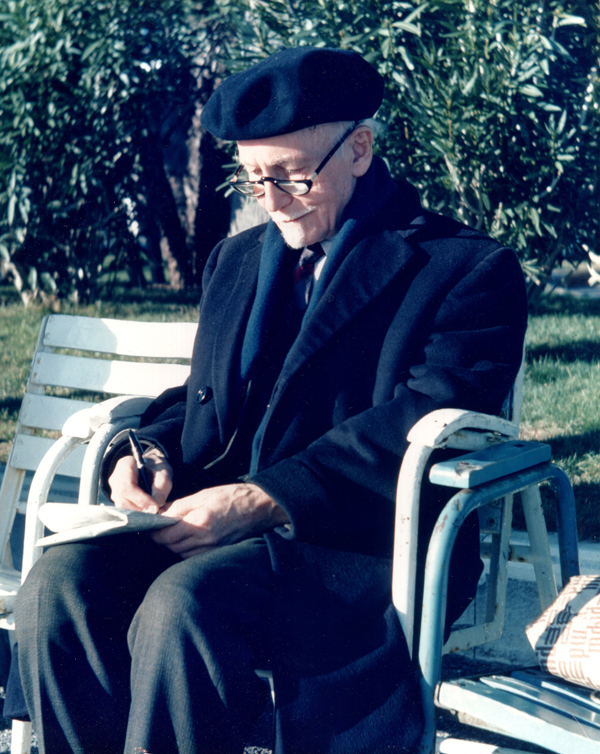
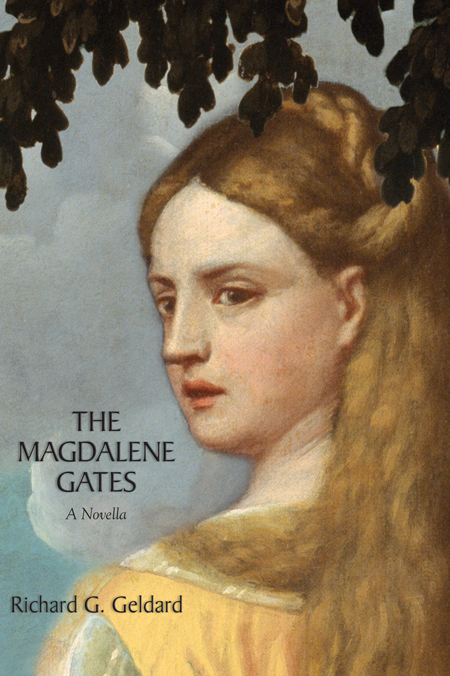
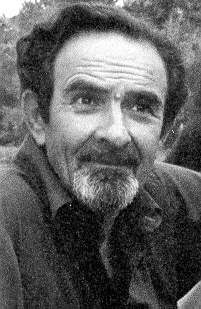

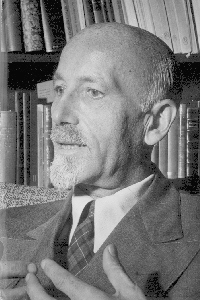
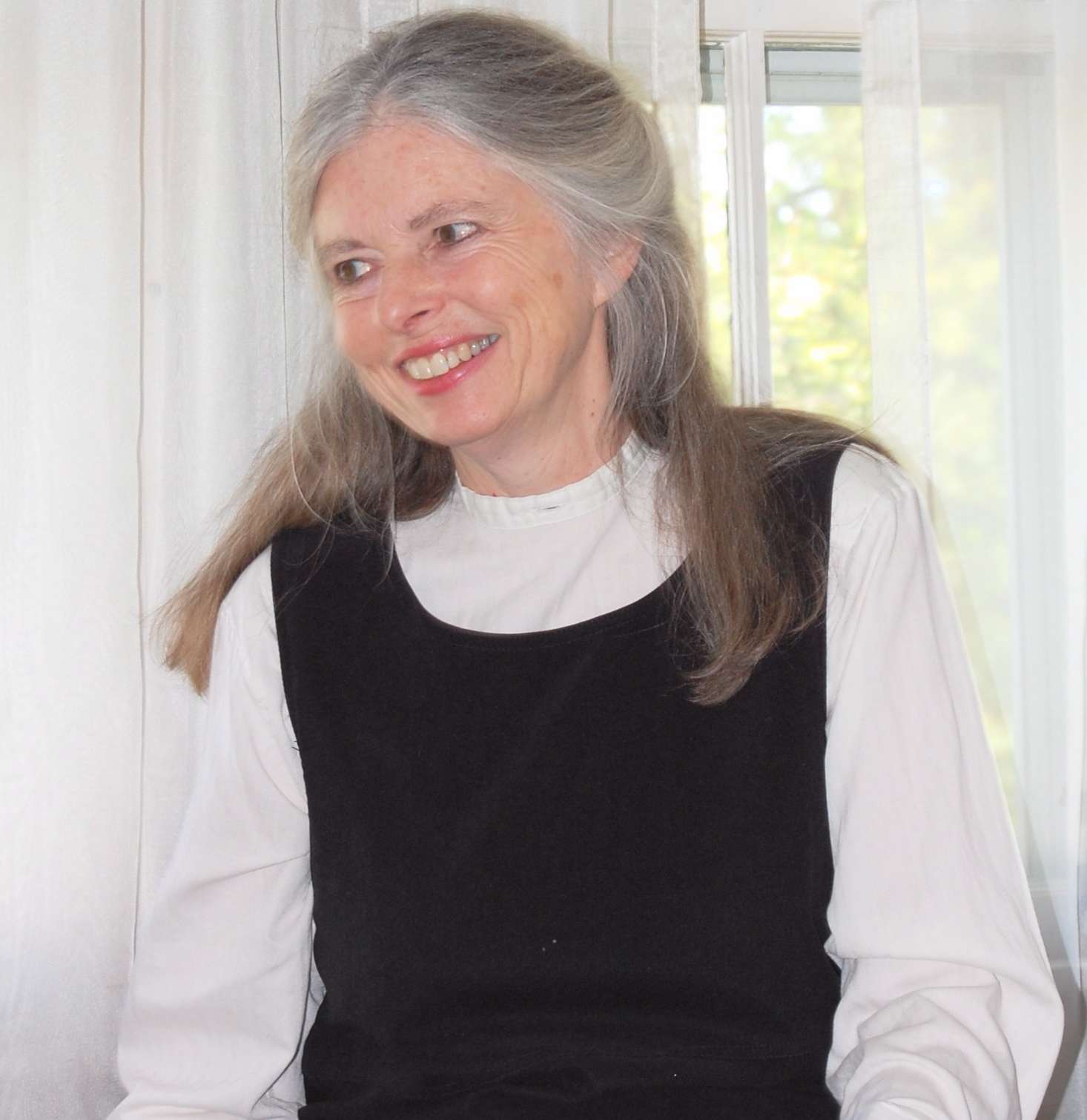
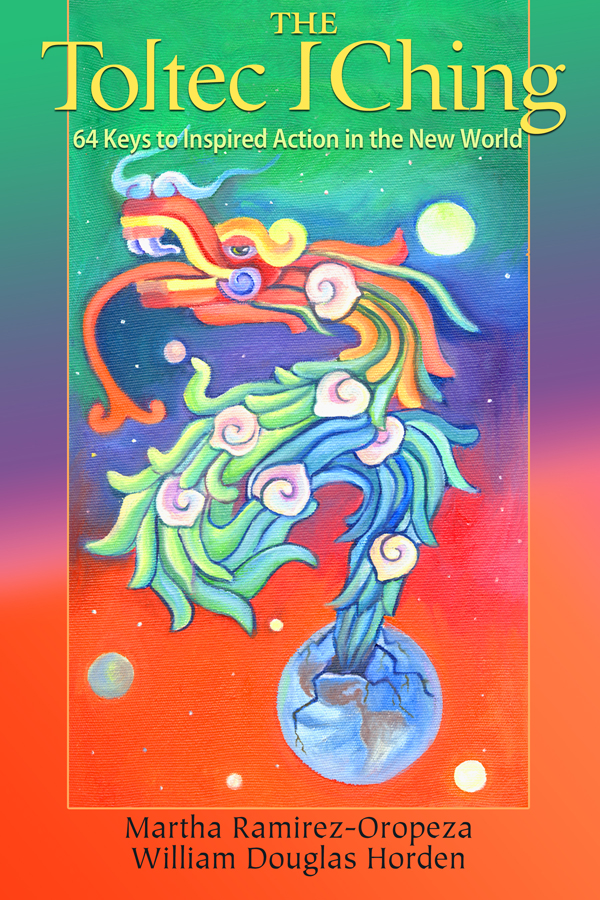
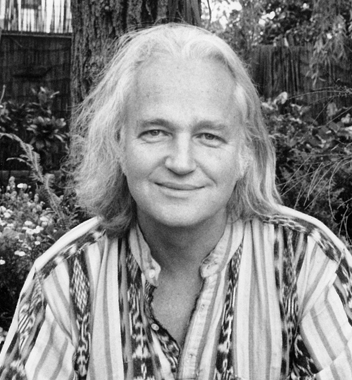
.jpg)

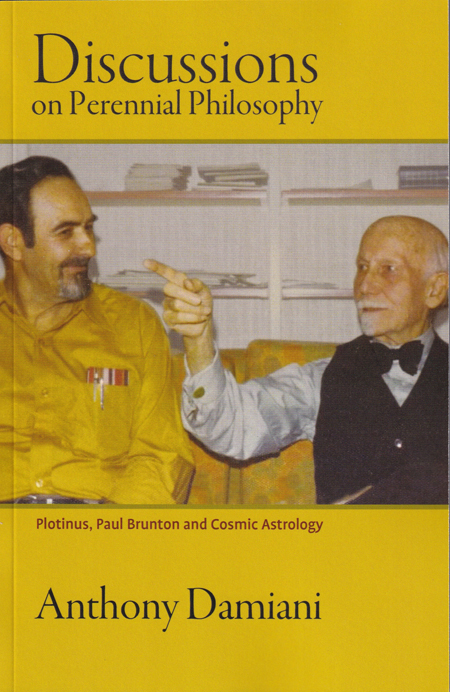
.jpg)
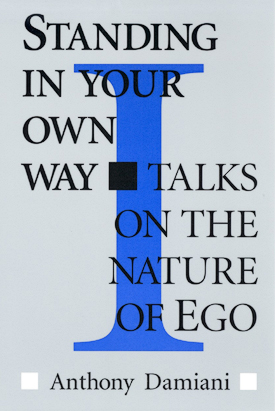
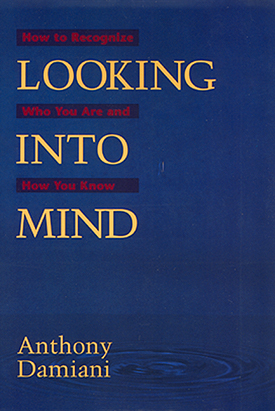
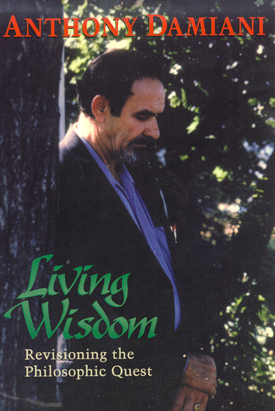

.jpg)
